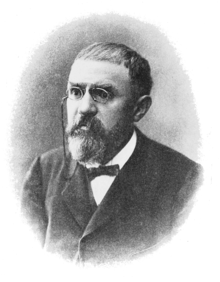Portal:Systems science
The systems science portal
 |
| Complex systems approach |
Systems science is an transdisciplinary[1] field that studies the nature of systems—from simple to complex—in nature, society, cognition, engineering, technology and science itself. To systems scientists, the world can be understood as a system of systems. The field aims to develop interdisciplinary foundations that are applicable in a variety of areas, such as psychology, biology, medicine, communication, business management, engineering, and social sciences.
Systems science covers formal sciences such as complex systems, cybernetics, dynamical systems theory, information theory, linguistics or systems theory. It has applications in the field of the natural and social sciences and engineering, such as control theory, operations research, social systems theory, systems biology, system dynamics, human factors, systems ecology, systems engineering and systems psychology. Themes commonly stressed in system science are (a) holistic view, (b) interaction between a system and its embedding environment, and (c) complex (often subtle) trajectories of dynamic behavior that sometimes are stable (and thus reinforcing), while at various 'boundary conditions' can become wildly unstable (and thus destructive). Concerns about Earth-scale biosphere/geosphere dynamics is an example of the nature of problems to which systems science seeks to contribute meaningful insights.
Selected article -
A writing system comprises a set of symbols, called a script, as well as the rules by which the script represents a particular language. The earliest writing was invented during the late 4th millennium BC. Throughout history, each writing system invented without prior knowledge of writing gradually evolved from a system of proto-writing that included a small number of ideograms, which were not fully capable of encoding spoken language, and lacked the ability to express a broad range of ideas.
Writing systems are generally classified according to how its symbols—called graphemes—generally relate to units of language. Phonetic writing systems, which include alphabets and syllabaries, use graphemes that correspond to sounds in the corresponding spoken language. Alphabets use graphemes called letters that correspond to spoken phonemes—with abjads only having letters for consonants, and pure alphabets having them for both consonants and vowels. In abugidas, graphemes correspond to spoken consonant–vowel pairs. Syllabaries use graphemes called syllabograms that represent spoken syllables or moras. By contrast, morphographic (or logographic) writing systems use graphemes that represent a language's units of meaning, such as words or morphemes. Alphabets typically use fewer than 100 symbols, while syllabaries and logographies may use hundreds or thousands respectively. (Full article...)
Selected picture

Systems engineering techniques are used in complex projects: from spacecraft to chip design, from robotics to creating large software products to building bridges, Systems engineering uses a host of tools that include modeling & simulation, requirements analysis, and scheduling to manage complexity.
'WikiProjects
Selected biography -
Jules Henri Poincaré (UK: /ˈpwæ̃kɑːreɪ/, US: /ˌpwæ̃kɑːˈreɪ/; French: [ɑ̃ʁi pwɛ̃kaʁe] ; 29 April 1854 – 17 July 1912) was a French mathematician, theoretical physicist, engineer, and philosopher of science. He is often described as a polymath, and in mathematics as "The Last Universalist", since he excelled in all fields of the discipline as it existed during his lifetime. Due to his scientific success, influence and his discoveries, he has been deemed "the philosopher par excellence of modern science."
As a mathematician and physicist, he made many original fundamental contributions to pure and applied mathematics, mathematical physics, and celestial mechanics. In his research on the three-body problem, Poincaré became the first person to discover a chaotic deterministic system which laid the foundations of modern chaos theory. He is also considered to be one of the founders of the field of topology. (Full article...)
Did you know
- ... that the anthropologist, linguist, and cyberneticist Gregory Bateson's most noted writings are Steps to an Ecology of Mind (1972) and Mind and Nature (1980).
- ... that the Yugoslavian Mihajlo D. Mesarovic in 1970s wanted to provide a unified and formalized mathematical approach to all major systems concepts.
- ... that the American ecologist Howard T. Odum in 1950 gave a novel definition of ecology as the study of large entities (ecosystems) at the "natural level of integration".
- ... * continuing vertically with a science of design,
Categories
Related portals
Topics
Tasks
 |
Here are some tasks awaiting attention:
|














